Sorry I’ve been out of the loop lately… 2013 has proved to be an even busier year that 2012! It’s only the second week of January and I already have 3 records to produce/record by March, 4 recording dates this coming week, a handful of videos to finish editing, some NAMM performances to prepare for, a clinic, and the shower is leaking. And on top of that I just had my Lasik surgery done on my eyes, so my vision is still not 100% (if you see mad typos all over the place just ignore them cuz I can’t see them!).
But anyways, enough useless rambling. Let’s get to some useful rambling. I recently received a message from a bass player who inquired about the use of compression in his sound. I’ll recap the message for you here:
“I was recently in the studio, and the engineer suggested that adding a good quality compressor to my rig would help tighten up my end of the band’s sound. Now, I’m using a Ric 4003 thru a SanAmp bass driver pedal, into an old Peavey 500 watt head into a 2×15 cab, mostly for the volume as the SansAmp is the only real EQ I actually use. It’s set for a real growly, overdriven, Geddy Lee-esque tone. We tune down C standard, modern hi gain metalcore type stuff with a mix of breakdowns and more syncopated/rhythmic bits. Judging by what I just told you, would compression really do anything for my sound or “tighten up” anything like the engineer said? I understand that compression is basically an automatic volume control of sorts, but I’m not sure it would help me at all. Thoughts?”
While I am going to reply to his question as best I can this may apply to YOUR sound as well!
In a nutshell, YES compression will “tighten” things up because that’s exactly what it does. It takes your loudest volume and your quietest volume and squashes them together somewhere in the middle. In the recording biz we call that “tightening” the sound, or making it sound more cohesive and pleasant.
Because think about it, when you kick on a record (or CD, or mp3, or… whatever) and you listen to a song, when do you ever hear the bass go away? Unless he or she stops playing altogether, a record of quality has a consistent bottom end to it, throughout the entire song and even continuing to the next song. If you don’t know what I’m talking about, try it right now. Put on some music and listen to the bass guitar, kick drum, and any low-pitch synthesizers. For the most part their volume remains consistent and full-bodied for the entire recording. Other instruments may fluctuate, like vocals or guitars, but you never really lose that bass do you? That’s because these days we want to hear a really “tight” sound.
Now, listen to a classical recording and you won’t hear that at all. Sometimes it’ll get so quiet you can’t even hear it!
So is this “tight” sound preferable? Well that’s for you to decide, but also it isn’t. Because let’s be honest, I know a TON of bass players who hate compression. They never use it. But guess what? As soon as you go into the studio and finish playing your song, guess what the engineer does to your song?
Compression on the bass. Compression on the master bus. Multi-band compression at the mastering lab. I bet your bass get compressed 4 or 5 times.
And if you walk on to any legitimate stage and send your signal to the FOH engineer, guess what he’s going to do to it?
You bet he’s gonna compress you. It’ll make the band sound substantially better, not only because of the “tightness” that I mentioned earlier, but there are more than likely some acoustic anomalies in the room you’re performing in, and compression may help tame those boomy tones.
So I know this is a long-winded answer, but to be completely honest compression will definitely tighten your tone because that’s precisely what it’s designed to do. But you may not like playing with it and prefer that the engineers do it for you after the fact, so you may disagree. And also don’t forget that while compression is a great surgical tool it can also be used as an effect. I prefer slapping with a compressor because I like the suction sound it makes. I love the sound of reggae bass with HEAVY compression. Multiband compression is great for when you want to compress only a certain group of frequencies and can give you some gnarly bass tones.
As always, try this out on your own and see if you like it. Buy a compressor pedal and throw it in the mix at rehearsals and gigs. If you get a stompbox compressor you can always bypass it if you think it sucks. I recommend checking out FEA Labs compressors cuz they rock 🙂
Here’s a few videos I have done if you need more advice on the use of compression. I hope that either answered your question, or guided you towards asking another one!

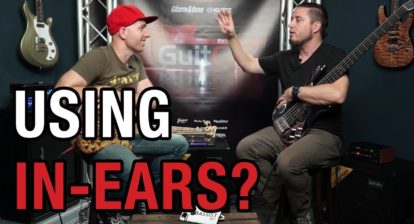

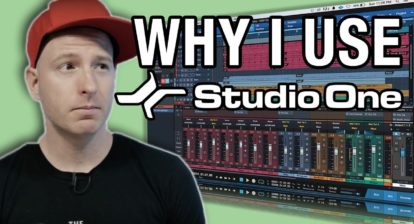
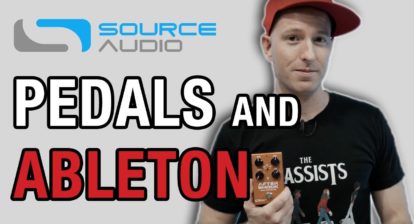
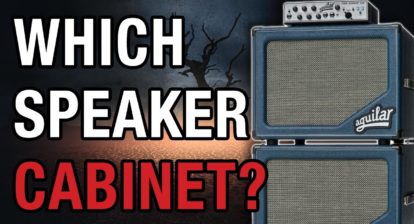
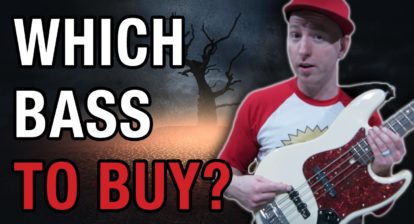

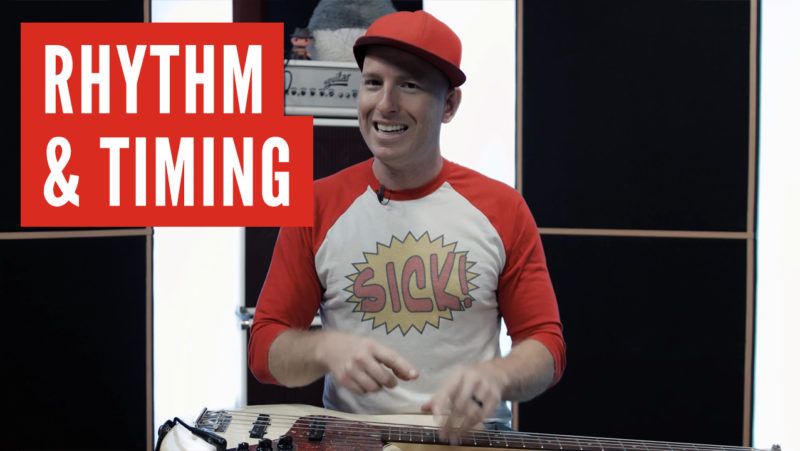
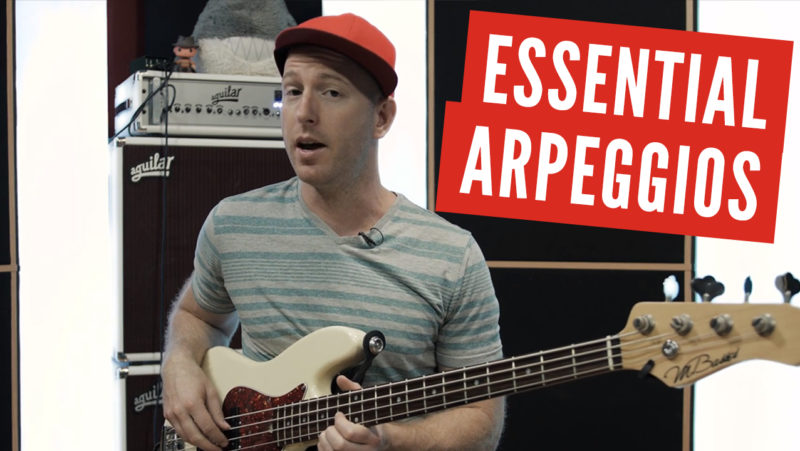
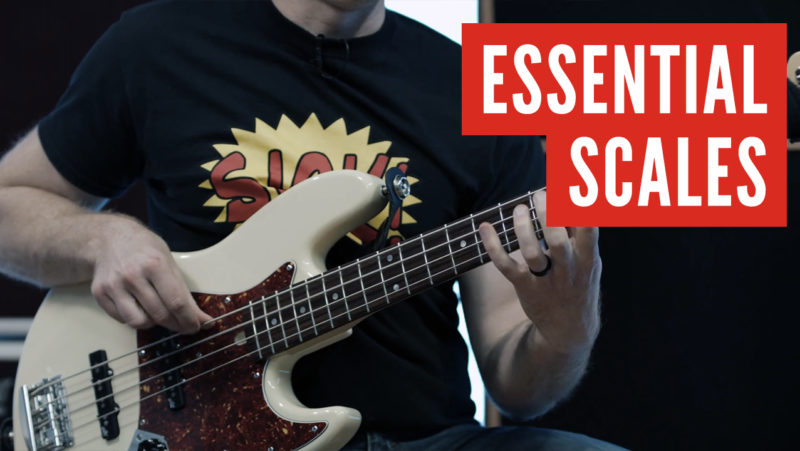
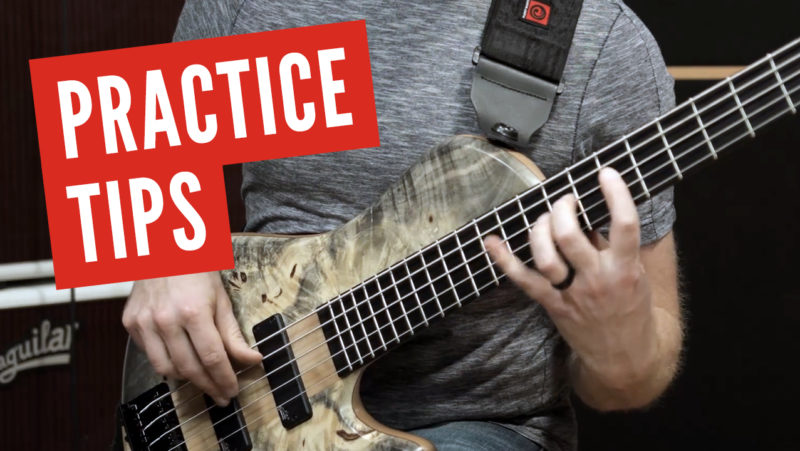
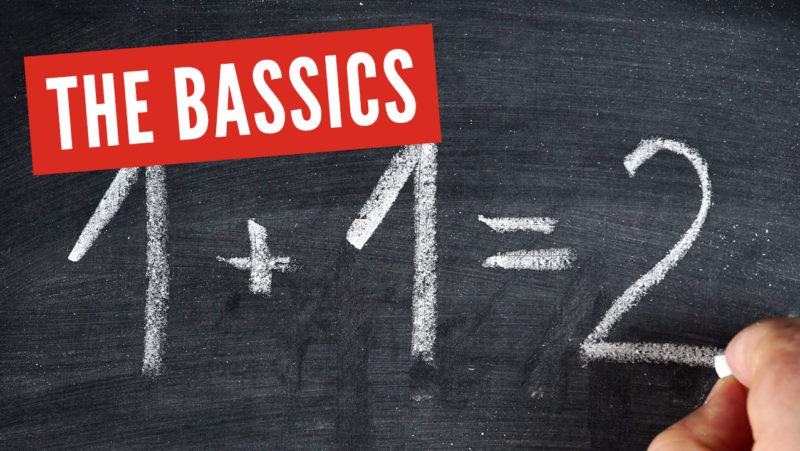
Matt Lawton
Hey Jayme!
I’ve recently bought the Boss CS-3 to see if I get along with compressors. I do like what it does to my sound but there’s a pop on the attack to pretty much all the notes I play while the pedal is on that I can’t seem to shift. It’s not very noticeable in a full band set up but really obvious when I’m playing by myself.
Any ideas how I can shift it?
Thanks man!!
Jayme
Hey Matt,
I’ve never used that pedal before, but I’d say try setting the Attack and Sustain at 12 o’clock and just use the Level knob to balance your volume (so that there is no volume difference when you bypass the pedal). Then try scooting the attack knob clockwise or counter clockwise to see which one will make that pop get better or worse. Because there’s no ratio knob it’s hard to dial out the intensity of the compression, but that click is definitely the bass getting squashed too much. You can also try using less sustain, so the compressor kicks off sooner.
Hope that helps!
Jayme
Matt Lawton
Thanks man, I’ll give it a go!
John Hewitt
I have mixed thoughts on this one… this is a huge topic… The debate will go on and on because is so dependent on the genre, medium etc.
Some thoughts to show how wide and deep (bad pun) the topic is… While I agree that compression will “tighten” your sound up… a lot of compression also takes away from your expression… your musical expression. Compression is the opposite of dynamics. Ultimate compression equals monotone and we all know how boring this is. I often have to spend a lot of time explaining dynamics to musicians and in the end I always get that big smile letting me know they get it. I still spend a lot of time myself practicing single string chromatic scales up and down the entire length of the neck and also string crossing exercises (ie. Rufus Reid open string étude) to get my dynamics and my tone of every single note even and in control. Every phrase and line of a song should build or release as well as the chorus and verse or solo. Piano players concentrate on learning the balance between their left and right hands and finally the balance between every finger when advanced. I never realized how bad my technique was until I got into a high end instrument (MTD 535) where I could hear everything. I had to quite playing out for 6 months until I learned how to get my instrument in control.
In the studio is another matter altogether because you are dealing with limited head rooms compared to amps and it is getting worse and worse in spite of advances in technology (google loudness wars). Car radios and cheaper stereos, ghetto blasters, etc. all have high signal to noise ratios and very low head room so a high level of compression is necessary. MP3 tracks are highly compressed. Radio stations use their own type of compression. Even playing live when there are big sub woofers requires extreme compression to keep that big pulse even while protecting the gear.
And yet another side… the Precision bass played through an Ampeg stack has very little dynamic and tone range but it is the sound that defined modern rock and pop. You don’t have to worry much about right hand dampening technique when playing this instrument… How do I respond to this one? Is a highly compressed bass sound the definition of what makes a good bass line? Jazz and classical = no compression, Rock and pop = high compression.
Compression is a huge topic and always has been since the bass went electric and even before as it dictated the type of woods used in the instrument. It is also very genre dependent and also depends on live versus studio. James Jamerson was predominantly a studio musician and I read he could keep that recording needle exactly where he wanted it, dead on, with no compression but then again they would sometimes put foam under the strings! You can also cut the bass note off a microsecond before the snare hits to control tape saturation. This is cool trick to really tighten the sound. There are lots of little tricks like this. I prefer not to use any compression myself or if the style or genre demands it (slap for example) I’ll use a bass with woods (wenge neck for example) that naturally compresses the sound. The electronics and pickup position also affects the compression dramatically. The bridge pickup has a greater dynamic range then the neck pickup.
Another topic of debate us how the compressor is connected in the signal chain. Dies the signal go straight through (the conventional way) or blended in parrallel (like a reverb) where you are using it more for the tone as well as the compression effect.
I remember reading about the making of Pink Floyd’s album Dark Side of the Moon and the arguments they had over the compression. The record company finally had to hire an independent engineer to get the album done as the band couldn’t agree.
Compression is a huge topic of which big thick books have been written. Bass players need to think through this topic thoroughly.
Jayme
Amen brother!
John Hewitt
I just read an Wikipedia article on parallel compression that was very interesting. Check it out. I never knew Dolby A was a form of sidechain or multiband compression. Interesting.
As a final thought (this topic never ends), if you must use a compressor, not all pedal board compressors handle the low B frequency of a 5 or 6-string bass. I was really disappointed for example with a really expensive 4-knob Keeley compressor I once owned. I do still own an EBS MultiComp dual band compressor which is very transparent with no pumping made to handle bass frequencies but the compression ratio is very low which is not necessarily a bad thing 😉 I never use it now. The ultimate rack compressor with the greatest flexibility I’ve found for studio work is the Empirical Labs EL8X Distressor with the British Mod. It is especially great as a side chain compressor as it emulates many vintage compressors. It has a digitally switched analogue single chain so no latency or phase shift problems. It can also be trigger easily through an EQ for multiband compression as it has a separate trigger signal input.
Sorry for the long comments. I rarely do blogs but like to say something meaningful when I do. This topic has always been really interesting to me.
Okay… one more thing… I can’t resist… Using a lot of compression increases fret click and unwanted finger noise as they not only squash the loud notes, the quiet notes are also brought up (sustain increased). There is also the discussion of Limiters, attack & decay rates and… using a noise gate to trigger a compressor and using the kick drum to trigger the bass compression and the other way around and….
Jayme
Yes, I always parallel compress in the studio, thus giving me the benefit of both playing dynamically and the tightness of compression. Side-chaining is usually for the mixing engineer because there’s just no way you can hear those important details from the stage, but this is also precisely how Dance music is usually made (and not just side-chaining the bass). Once you get into the world of engineering there’s a multitude of technologies and techniques at your disposal, and I always try to carry them into my bass playing because it’s stuff that a “normal” bass player would never think of 🙂
Ryan
Thanks for posting my inquiry man! 🙂 You rock!
Jayme
Thanks dude! And you’re very welcome sir!